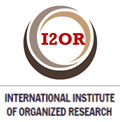Organizational resilience. A construct to empower companies
Keywords:
resilience, organization, instruments.Abstract
Introduction: resilience can be considered the ability to adopt both reactive and proactive measures in the face of adversity. When resilient, the company is able to quickly take advantage of and anticipate opportunities or threats. Objective: from a psychological perspective, systematize concepts on resilience and update on the subject Method: a review of related aspects was carried out, including periodical publications of national and foreign authors indexed in different databases with the review of 30 updated bibliographies Results: it has become increasingly important for organizations, their teams and members to develop the capacity to respond effectively and promote positive adaptation to changes which facilitate the creation of scenarios to solve various types of conflicts, help and turn difficulties into opportunities. Currently, the Organizational Resilience Scale is validated in Cuba with the authorization of its author, Dr. Marisa Salanova. Conclusions: The application of resilience in companies is important as it helps to solve difficulties and problems they face; This construct empowers companies to respond effectively and encourages opportunities to act quickly and efficiently in threatening and crisis situations.
Downloads
References
Sutcliffe, K.M. & Vogus, T.J. (2003). Organizing for Resilience. In Cameron, K., Dutton, J.E., & Quinn, R.E. (Eds.), Positive Organizational Scholarship. San Francisco: Berrett-Koehler. Chapter 7 pp: 94-110 [Internet]. 2003; [citado 5 Nov 2018]. Disponible en: https://cpor.org/ro/sutcliffe-vogus.
Masten A S. Ordinary magic. Resilience pro¬cesses in development. American Psychologist [Internet]. 2001; [citado 7 Mar 2019]; 56: 227-238. Disponible en: https://psycnet.apa.org/fulltext/2001-00465-004.html.
Giustiniano L, Clegg S R, Pina M, Arménico C. Theories of organizational resilience [en línea]. Estados Unidos: Elgar; 2018 [citado 25 Nov 2018]. Disponible en: https://books.google.com.cu/books? id= (Stephens+et+al., +2013; +Sutcliffe+y+Vogus, +2003) & Stephens%20et%20al. %2C%202013%3B%20Sutcliffe%20y%20Vogus%2C%202003).
Luthar S S, Cicchetti D, Becker B. The construct of resilience: a critical evaluation and gui¬delines for future work. Child Development [Internet]. 2000; [citado 7 Mar 2019]; 71(3): 543-562. Disponible en: https://onlinelibrary.wiley.com/doi/abs/10.1111/1467-8624.00164
American Psychological Association. Resilience. Apa. [Internet]. 2009; [citado 12 Mar 2019]. Disponible en: http://www.apa.org/practice/programs/campaign/resilience.aspx.
West B J, Patera J L, Carsten M K. Team level positivity: investigating positive psychological capacities and team level outcomes. Journal of Organizational Behavior. [Internet]. 2012; [citado 28 Nov 2018]; 267: 249-267. Disponible en: https://onlinelibrary.wiley.com/doi/abs/10.1002/job.593.
Algoe S.B, Fredrickson B.L. Emotional fitness and the movement of affective science from lab to field. American Psychologist [Internet]. 2011; [citado 18 Mar 2019]; 66 (1): 35-42. Disponible en: https://www.ncbi.nlm.nih.gov/pubmed/21219046.
Meneghel I, Salanova M, Martínez I M. Feeling Good Makes Us Stronger: How Team Resilience Mediates the Effect of Positive Emotions on Team Performance. Handle [Internet]. 2016; [citado 18 Mar 2019] Journal of Happiness Studies, 17(1), 239-255.; 77 (1). Disponible en: http://hdl.handle.net/10234/161420.
Fleig P, Luthans K W, Mandernach B J. Successful Reemployment through Resi¬liency Development. Journal of Career Development Science [Internet]. 2009; [citado 7 Dic 2018]; 35 (3): 228-247. Disponible en: https://journals.sagepub.com/doi/abs/10.1177/0894845308327271
Meneghel I, Salanova M, Martínez I M [Internet]."Job-related antecedents of team resilience and improved team performance", Personnel Review, Vol. 45 No 3 pp. 505–522; 2016. [citado 30 Nov 2018] Disponible en: http://dx.doi.org/10.1108/PR-04-2014-0094
Harold F, Villamar L. La resiliencia su aplicación en el sector empresarial. Rev Eumed. [en línea]. 2015 [citado 20 Nov 2018]; Disponible en:http://eumed.net/ce/2015/1/resiliencia.html
Kaplan S, Laport K, Waller M J. The role of positive affectivity in team effectiveness during crises. Journal. [Internet]. 2013; [citado 8 Feb 2019]; 34: 473-4
Downloads
Published
How to Cite
Issue
Section
License
Aquellos autores/as que tengan publicaciones con esta revista, aceptan los términos siguientes:- Los autores/as conservarán sus derechos de autor y garantizarán a la revista el derecho de primera publicación de su obra, el cuál estará simultáneamente sujeto a la licencia Creative Commons Reconocimiento-NoComercial-CompartirIgual 4.0 Internacional (CC BY-NC-SA 4.0) Esta licencia permite a otros compartir el trabajo con un reconocimiento de la autoría del trabajo y la publicación inicial en esta revista (componente BY o atribución). Coincidente con la política de Acceso Abierto, no se podrán hacer usos comerciales de los contenidos publicados por esta revista (componente NC). Se permitirán las obras derivadas (remezcla, transformación o creación a partir de la obra original), siempre y cuando sean distribuidas bajo la misma licencia de la obra original (componente SA).
- Los autores/as podrán adoptar otros acuerdos de licencia no exclusiva de distribución de la versión de la obra publicada (p. ej.: depositarla en un archivo telemático institucional o publicarla en un volumen monográfico) siempre que se indique la publicación inicial en esta revista.
- Se permite y recomienda a los autores/as difundir su obra a través de Internet (p. ej.: en archivos telemáticos institucionales o en su página web) antes y durante el proceso de envío, lo cual puede producir intercambios interesantes y aumentar las citas de la obra publicada. (Véase El efecto del acceso abierto).






